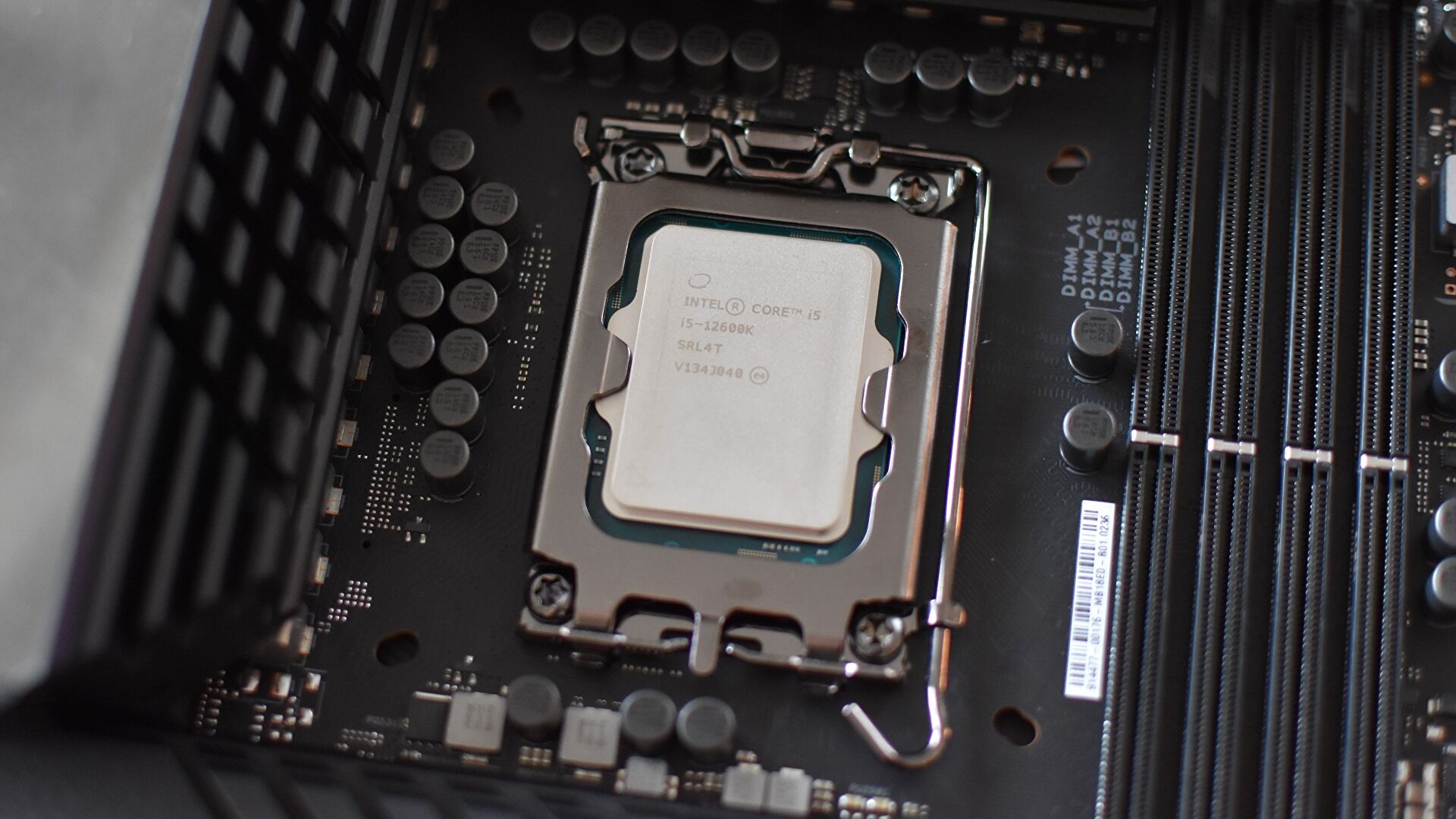Intel play down Alder Lake CPU bending, “strongly recommend against” socket mods


Some of Intel’s 12th Gen Alder Lake processors are among the best gaming CPUs you can buy, but certain owners have noticed a seemingly worrisome trend: their LGA 1700 motherboard socket puts so much pressure on the chip that its IHS (integrated heat spreader, the big gray bit on top) starts to bend. This isn’t so much a concern for the CPU’s structural integrity as it is a cooling issue, as a non-flat IHS will struggle to transfer heat to the CPU cooler plate as effectivity.
In a statement to Tom’s hardware, however, an Intel spokesperson has essentially said it’s not as bad as it sounds. The statement does acknowledge the warping (or “deflection”, to use Intel’s more engineer-y term), but says there’s no evidence thus far to suggest it drives load temperatures up to unsafe levels.
The statement reads: “We have not received reports of 12th Gen Intel Core processors running outside of specifications due to changes to the integrated heat spreader (IHS). Our internal data show that the IHS on 12th Gen desktop processors may have slight deflection after installation in the socket. Such minor deflection is expected and does not cause the processor to run outside of specifications.”
In other words, the weird flexes of Alder Lake CPUs won’t make them run above their specified 100°c maximum. Third-party reports suggest the issue can add up to 5°c to normal temps, so if – for example – your Core i9-12900K was already running at 100°c before warping affected the cooling effectiveness, the CPU would downclock itself to maintain 100°c instead of creeping up to 105°c.
The extent to which this is a ‘big deal’ is probably open to, uh, interpretation. Under normal, non-overclocked use, the Alder Lake chips I’ve tested will only hit 100°c if you’re not using a sufficiently powerful cooler in the first place. The number of users who’d be tangibly affected by this is likely to be relatively small, especially since warping might not even be an inevitability. Both my Core i5-12600K and LGA 1700-socket motherboard are as straight as they were new, and the latter has been clamping down on the former for months.
That said, anyone who pays for an overclockable CPU should absolutely expect to be able to overclock without hidden quirks making it harder; downclocking to maintain a 100°c limit would of course slow the CPU back down, on what may have been fully effective OC settings had the hardware not changed shape. On a more subjective level, I can’t imagine it’s much fun to sit there wondering if your expensive new component is about to bend like Elmer Fudd’s shotgun.
Some enthusiasts have already developed their own fixes, like this custom replacement bracket by competitive overclocker Karta, though Intel’s statement adds that attempting to install such mods could be bad news for the warranty:
“We strongly recommend against any modifications to the socket or independent loading mechanism. Such modifications would result in the processor being run outside of specifications and may void any product warranties.”
While I don’t think this spoils the appeal of Alder Lake CPUs too much, it does highlight the importance of equipping your PC with sufficient cooling for your needs. Unless you are going for extreme overclocks on the higher-end 12 Gen chips, including the new Intel Core i9-12900KS, installing an AIO watercooler should be more than enough to stop it sweating under load. bendy or flat.
Reference-www.rockpapershotgun.com